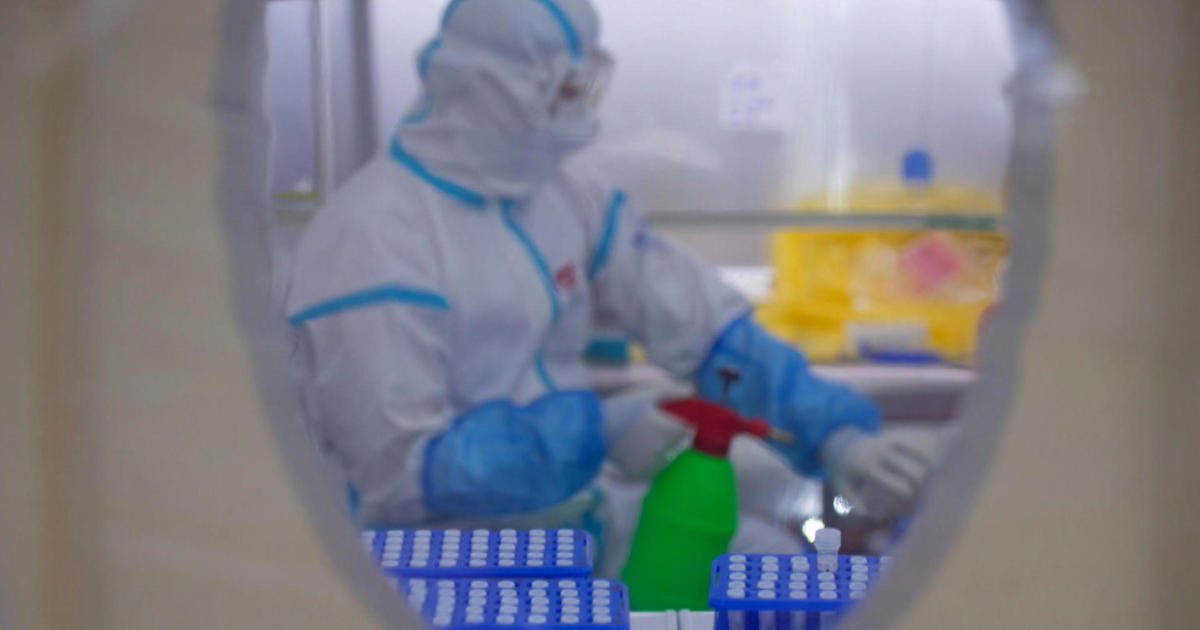Another reason to stay away from Genealogy/Ancestry harvestors!
U.S. intelligence officials say Chinese government is collecting Americans' DNA
60 Minutes has learned Chinese company BGI Group, the largest biotech firm in the world, offered to build COVID labs in at least six states, and U.S. intelligence officials issued warnings not to share health data with BGI. See the story, Sunday on CBS.
The largest biotech firm in the world wasted no time in offering to build and run COVID testing labs in Washington, contacting its governor right after the first major COVID outbreak in the U.S. occurred there. The Chinese company, the BGI Group, made the same offer to at least five other states, including New York and California, 60 Minutes has learned.
This, along with other COVID testing offers by BGI, so worried Bill Evanina, then the country's top counterintelligence officer, that he authorized a rare public warning. "Foreign powers can collect, store and exploit biometric information from COVID tests" declared the notice. Evanina believes the Chinese are trying to collect Americans' DNA to win a race to control the world's biodata.
Jon Wertheim speaks to Evanina and others for an investigation into how personal data, particularly biodata, has become a precious commodity and in the wrong hands, poses threats to national security and the economy. Wertheim's two-part report will be broadcast on 60 Minutes Sunday, January 31, at 7 p.m. ET/PT on CBS.
Thanks partially to Evanina's efforts, none of the states accepted the offer of the BGI Group, which he says has close ties to China's military and ruling Communist Party. "This shows the nefarious mindset of the Communist Party of China, to take advantage of a worldwide crisis like COVID," says Evanina. A veteran of the FBI and the CIA, he recently stepped down, but not before sounding the alarm. "We put out an advisory to not only every American, but to hospitals, associations, and clinics. Knowing that BGI is a Chinese company, do we understand where that data's going?"
One worry for Evanina and others is control over biodata that can lead to the complete control over health care: if a person's current or future medical condition is known through DNA and other data, the entity that knows it can gain a monopoly over the therapy or drugs to treat them. "From a long-term existential cost to our nation, do we want to do that? Do we want to have another nation systematically eliminate our health care services?" asks Evanina. "That's what's happening."
This is already happening on a smaller scale; the U.S. is almost entirely dependent on China to furnish the PPE it uses to combat the pandemic. The future could look a lot worse says Edward You, a former biochemist turned supervisory special agent in the FBI. "What happens if we realize that all of our future drugs, our future vaccines… are all completely dependent upon a foreign source? If we don't wake up, we'll realize one day we've just become health care crack addicts and someone like China has become our pusher," he tells Wertheim.
There are potentially other ways for China or other foreign powers to obtain the DNA of Americans. Millions of Americans have voluntarily given their DNA away when they used the services of genealogy companies to learn their ancestry. There is a lot that can happen to their DNA and most donors are not fully aware of the potential risks, bioethicists say. The genealogy companies can have partnerships with biotech firms to share that data, in the interest of developing treatments. Evanina says Chinese firms have been investing in U.S. biotech companies, in part, to get access to health data and technology. BGI states on its website it's been developing partnerships with U.S. hospitals and biotech firms. People don't seem to know the value of their own genetic material, says Evanina. "It's your past and your future as well as your children's future. It's very risky and I think the unknown is probably the riskiest part."
It's not just China that is interested in collecting the biological data of American citizens. Wertheim reached out to the nation's largest genealogy firms to get their perspective on the security of Americans' health data. Anne Wojcicki, CEO of 23&Me, responded to questions about whether the true value of these genealogy companies lies in the health data they are collecting. "What we have done is we have empowered individuals with this opportunity to come together, to crowd source research," Wojcicki says. "And I absolutely stand behind: we are going to develop drugs. So that everyone is actually benefiting from the human genome. So absolutely the data is valuable." Wojcicki agrees with intelligence officials on China. "We need to be super vigilant about China, you know, with any kind of data. But the issue is more that China is putting billions of dollars into their own genetic programs and we are not."
But sharing your DNA with these companies is risky enough that the U.S. military recently issued a warning to all service members instructing them not to use direct-to-consumer genealogy tests, saying, "These genetic tests are largely unregulated and could expose personal and genetic information… Outside parties are exploiting the use of genetic data."
BGI Group declined to be interviewed, but said in a statement, "The notion that the genomic data of American citizens is in any way compromised through the activities of BGI in the U.S. is groundless." The company identified itself as "a private organization," which was "founded to benefit human health and wellbeing."
Chinese hackers have breached the databases of American hotels, health care companies, a credit reporting bureau and the U.S. government; Chinese operatives have been stealing American technology for years. Nearly every American has been compromised already says Evanina. "You have probably five or six healthcare companies the last five years who have been, I would say, penetrated, exfiltrated, hacked by China," he tells Wertheim. "Current estimates are that 80% of American adults have had all of their personally identifiable information stolen by the Communist Party of China."
In December, John Ratcliffe, then the director of National Intelligence, named China the number-one national security threat to America, citing its theft of technology and data.








